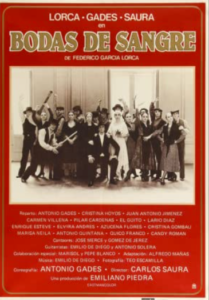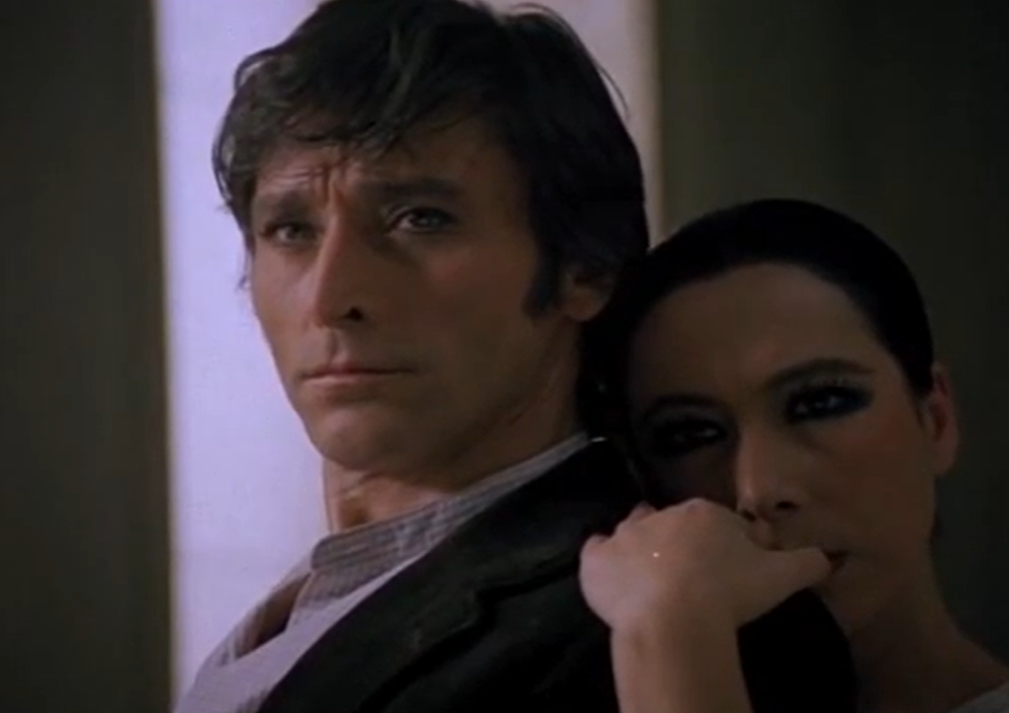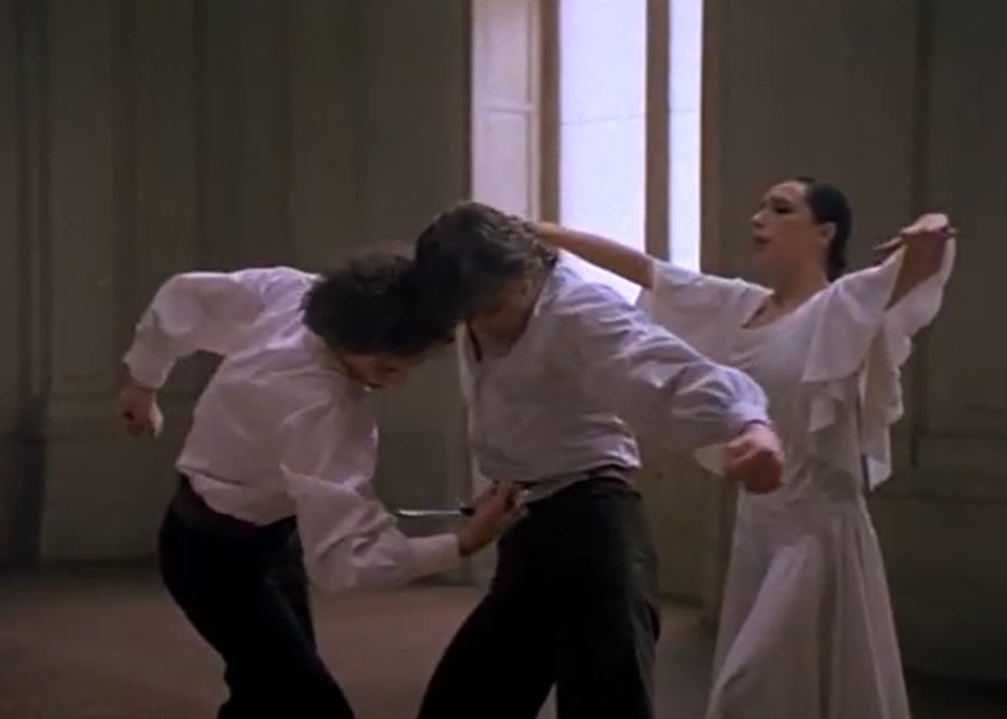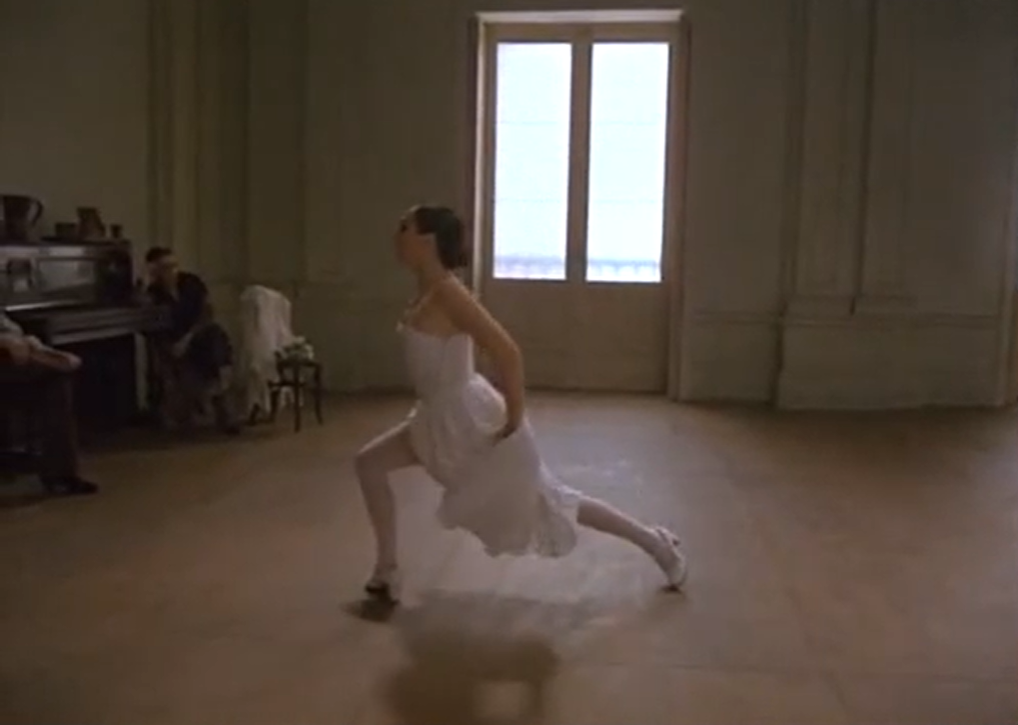Blood Wedding (1981)
“Wake up the bride with the green bouquet of flowering love.”
|
Synopsis: |
|
Genres, Themes, Actors, and Directors:
Response to Peary’s Review: He notes that because “Saura wants us to feel the importance of what we’re about to see — and have us feel it’s more than a rehearsal — he pulls a couple of tricks,” including taking “us into the dancers’ dressing rooms so we can get to know them personally” (though this is limited to light banter, guitar warm-up, and dancers putting photos up on their mirrors). Peary writes that given that “the rehearsal takes place in a large, bare rehearsal hall,” “Saura and Gaudes attempt… to make us become so involved with the dancing and the characters that we forget about he minimal set and perhaps imagine that the light filtering through the background windows is Lorca’s moon.” He adds that “the dancers perform with passion… and Saura moves his camera among them, floating into a close-up or waiting for a dancer to spin toward him and stop dramatically right before the lens.” He notes that he finds “the setting distracting” (I don’t, given the context) but concedes that the “film isn’t boring, even for those who don’t like dance.” Indeed, at just 72 minutes, this first of four flamenco-themed movies Saura would make — including the GFTFF-listed Carmen (1983) — is short enough to hold interest throughout. I always appreciate behind-the-scenes looks at art being crafted, and consider this to be a worthy entry in that sub-genre; however, it’s not must-see viewing for all film fanatics. Update on 2/15/23: RIP, Carlos Saura. Notable Performances, Qualities, and Moments: Must See? Links: |





One thought on “Blood Wedding (1981)”
First viewing (5/10/21). Not must-see – but it will be of interest to those who enjoy experiencing the arts in different cultures.
Those in the theater may appreciate it more since the beginning includes the performers being themselves backstage as well as Gades telling us the story of how he became a dancer.
This is a final dress rehearsal without a set so there is a bare-bones quality to the piece. And it builds slowly to what becomes something akin to the dynamics of ‘West Side Story’ (with its hotbloodedness and all).
Enjoyment may depend on how familiar you are with Lorca’s original play – something Spanish audiences are no doubt much more familiar with.
Appreciation of dance in general can be a matter of taste. All told, this didn’t do a whole lot for me personally but I thought it had its moments.